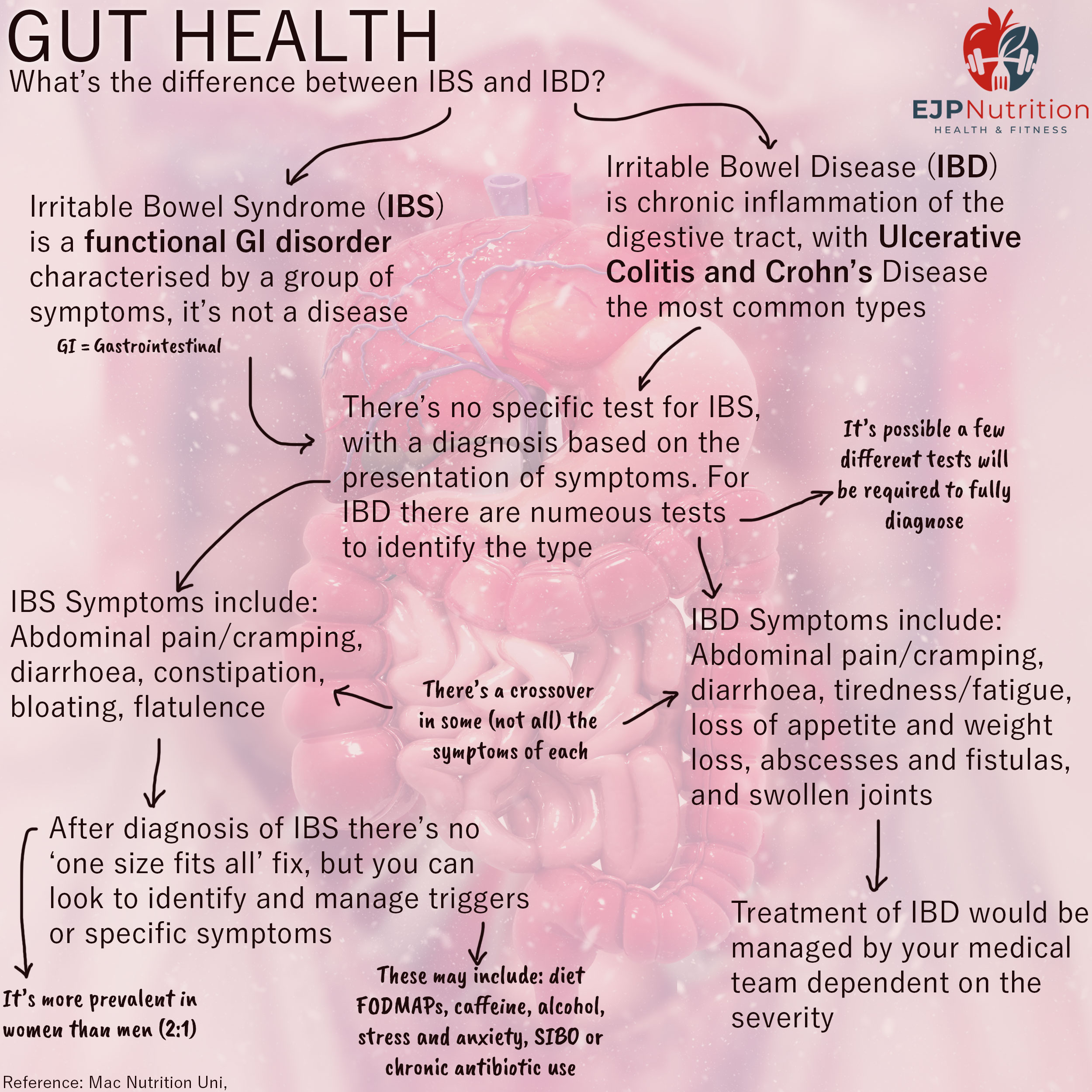Gut health is bit of a hot topic, because it’s so prevalent & so many people suffer. It can be debilitating, & really affect someone’s quality of life. This is an overview of the common types.
IBD & IBS
IBD is Irritable Bowel Disease. The most common forms are Ulcerative Colitis & Crohn’s. IBD is chronic inflammation of the digestive tract. IBS is Irritable Bowel Syndrome. This is a functional gastrointestinal (GI) disorder, with a group of symptoms, it’s not a disease. IBS-C is when is when the irregular bowel habits include more constipation. IBS-D sufferers have more diarrhoea.
IBS and IBD have a large crossover of symptoms, but they are not the same issue. While IBS can lead to debilitating symptoms, this differs to the damage IBD can do to your digestive system, which often needs surgery & is a life-long disease.
Diagnosis
If you suspect you have one of these conditions, it’s important to see your doctor who can diagnose you further. Tests can check if it is something serious that needs immediate treatment before it develops further. The damage from IBD can usually be seen on a colonoscopy. In contrast with IBS there aren’t obvious abnormalities you can see in the digestive tract.
IBS rarely leads to hospitalisation or surgery. As it is defined by a group of symptoms, management of the condition should look at those and deal with each individually.
Common IBS triggers include; high FODMAP foods, fibre type/intake, other dietary triggers, caffeine, alcohol, stress/anxiety & chronic antibiotic use. SIBO can be another cause; this is the most common type of dysbiosis.
We don’t yet fully understand the gut-brain axis & how this may affect GI conditions. But stress management can be underrated and is potentially important in treating IBS. Exercise has also in some individuals helped improve symptoms. Although endurance training can exacerbate them.
This post isn’t to offer magic answers. Gurus claiming they can cure this, or anyone stating there is one solution, simply isn’t being truthful. For IBD you need the care of a medical team. For IBS it’s about looking at individual symptoms & solutions, & trialling different options until finding what best helps to manage it.
Extra Note: Coeliac disease, another condition with a crossover of GI symptoms, I talk about in my recent gluten post if you want to know more about that.


